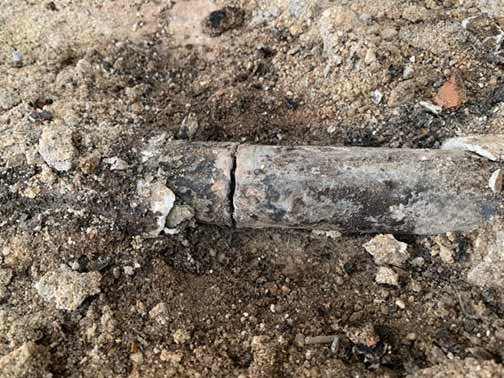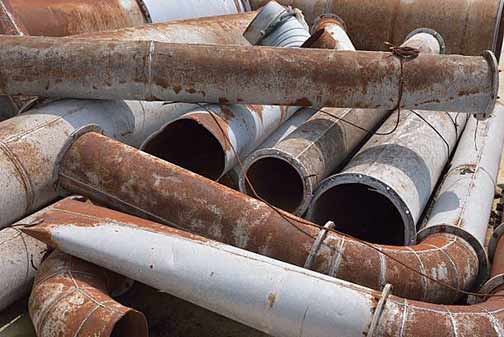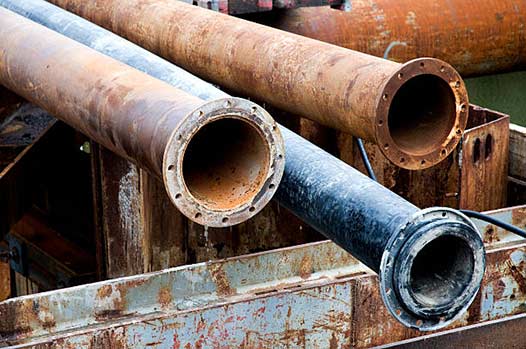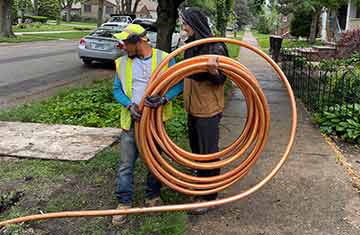Lead water lines have been banned in the United States for the last 38 years. The law, which came into effect in 1986, only prohibited the use of lead pipes in new water line installations; it allowed existing lead service lines to remain.
However, since 1986, US States and cities have been steadily enforcing the replacement of lead pipes in public and private water lines. However, Ratner Maintenance says, one city has been very slow in implementing this ban; as of 2022, Chicago had the most lead water pipes of any US city.
All that changed in January 2023 following the announcement of a new state law that mandated the replacement of all lead service lines (public and private) in Chicago. By current estimates, approximately 400,000 homes will be affected by this new law.
As the possible owner of one of these homes, what do you need to know about how to replace a lead water line in your home? In this concise post, we explain the dangers of lead water lines, how to identify if you have lead pipes and the steps to replace the pipes.
The dangers of lead water lines
The main danger of having lead water lines in your home is that lead leaches into your drinking water. Lead, a heavy metal, is classed as a neurotoxin; it affects nervous tissues in the human body. If the level of lead in water is higher than 15ppb (parts per billion), it can cause the following:
- Delayed development and brain damage in young children.
- Lower IQ and poor academic performance.
- A higher risk of behavioral problems as well as ADHD.
- Susceptibility to cardiovascular diseases and hypertension in adulthood.

If your home was built after 1988 and the water connection was installed during construction, it is uncertain that you have a lead service line.
Do you have lead water lines in your home?
If your home was built after 1988 and the water connection was installed during construction, it is uncertain that you have a lead service line. However, if your home was built after 1988 but the water service line was installed before 1988, it probably has lead pipes.
If you are unsure, there is a simple way to check. For this step, you need a flathead screwdriver and a magnet. You also need to know the location of the water service line coming into your home (typically found in the basement). You don’t need to do this test if your pipe is plastic, not metal.
Follow these steps to check if you have a lead service line:
- Choose an area between the point where the pipe enters your home and the inlet valve.
- If the pipe is wrapped or covered, expose a small part of it.
- Scratch the body of the pipe until you see the metal under the coating.
- If the scraped area is copper-color (like a penny) and the magnet doesn’t stick to the line, your service line is copper.
- If the scraped area is silver or gray and the magnet sticks to it, you have galvanized steel pipes.
- If the scarped surface is silver or gray and the magnet doesn’t stick to it, you have lead pipes.
To be sure, you may want a professional plumber to look at the pipes and test your water.
Replacing the lead water service line in your Chicago home
Replacing a lead water service line is a labor-intensive process that involves extensive excavation. It is not a job you can DIY. A trench is carefully dug from your home to the point where the service line connects to the water main to access the line and retrieve it.
Your home may qualify for the city’s Equity Lead Service Line Replacement Program if it meets the requirements. To be eligible for this program, you must:
- Have a household income below 80% of the median income for your area (usually $72,800 for a family of 4).
- Present water test results for your home consistently showing lead levels of at least 15 parts per billion. These tests are done free by the Department of Water Management.
Replacing the lead pipes on your property begins with interviewing and selecting a qualified contractor. Only work with plumbers from the city’s list of licensed plumbers. The contractor you choose for this job is essential for several reasons.
The contractor is responsible for ensuring you get permit waivers from the Department of Buildings for this project. An experienced plumber will also work with you to review the entire water line replacement and installation process, along with the scope and timelines.
These steps help you save money and time by ensuring the work is done efficiently with minimal disruption to your household and limited damage to your landscaping. Most importantly, it guarantees the smooth operation and longevity of your newly installed water line.



